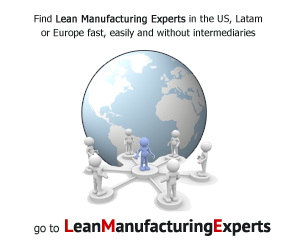Driving lean manufacturing from auto parts to medical devices
After years of making auto parts, John Sapiente says the lessons of Japanese-style lean production are automatic, like a prayer a monk has been repeating since his novitiate days: Drive out costs. Produce high quality. Keep getting better. Otherwise, the customer moves on.
The U.S. auto industry figured out it had adopt such principles after Toyota Motor Corp. and other Japanese companies invaded the market more than 30 years ago with vehicles that were better and cheaper than the hulks domestic manufacturers were producing.
Sapiente says a similar dynamic is playing out in the $40 billion medical manufacturing sector. Only this time it’s the Affordable Care Act that’s transforming the industry.
“The whole process has got to drive waste out of the system” because of the health care law, says Sapiente, who owns Elgin Die Mold Co. — an injection molder that supplies such customers as Fiat Chrysler and Ford — and Trident Manufacturing Inc., a medical-device maker. “It’s a big cultural shift.”
He is trying to get ahead of the curve by putting Japanese principles into practice at Trident, a company he acquired five years ago and moved from Rockford, Ill., to a facility it shares with Elgin in Pingree Grove, a small town about 50 miles west of Chicago.
An example: He once walked through Trident’s space in his plant and realized 10 employees were using scissors to cut 18-inch surgery sutures in half as part of an order for a client. Simply buying the sutures at 9 inches would have cost a fortune, so he spent $5,000 on a wire-cutting machine that could make the cuts faster and more precisely but with less labor input.
“For a $5,000 investment, I think it yielded almost a $100,000 cost saving in one year, plus it improved the quality,” Sapiente says. “That’s automotive.”
Such moves add up, but it’s often hard for small, privately held manufacturers to put changes into practice on the shop floor. “It’s difficult for them to see the need,” says Patrick Lucansky, CEO of Mundelein, Ill.-based consultancy Value Innovation Partners. “Their focus is not on operating in a cost-effective manner.”
Trident, Sapiente figures, has an edge because it’s committed to lean production, and that should allow it reel in more customers — its biggest today is Halyard Health — and grow from about 20 employees to hundreds over the next few years. (He declines to disclose sales.)
Sapiente, 46, grew up in the northwest suburbs of Chicago and graduated with degree in communications from the University of Kansas, hoping to be a sportscaster. Instead, he signed on as a management trainee with electrical lighting maker Cooper Industries. In 1994, he took a sales position at Elgin Die, which was owned by his father.
He bought Trident to diversify after the auto sector was crushed by the Great Recession. Little did he know that with medical devices, he was getting into an industry ripe for changes carmakers had been through years before.

 News, training, experts opinion, bibliography, software and everything about Lean world.
News, training, experts opinion, bibliography, software and everything about Lean world.
